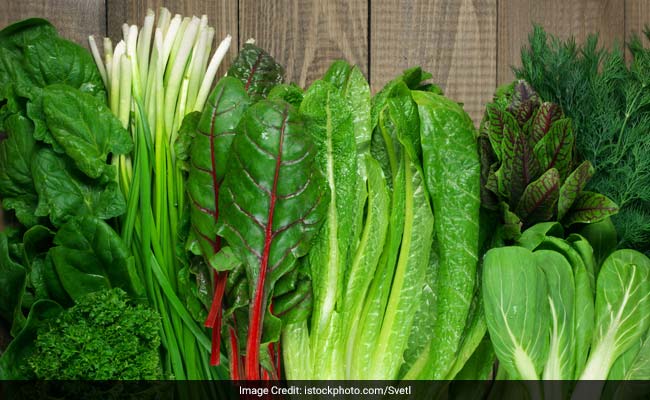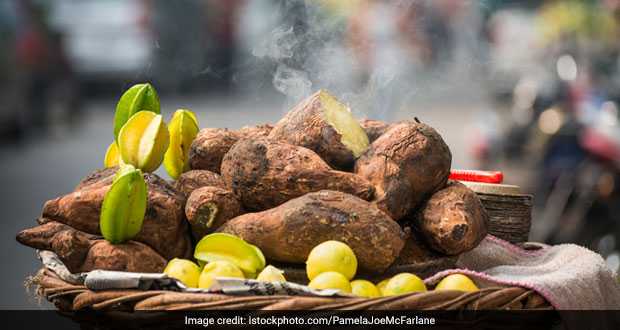We all know that eating food provides the fuel to our body to function well and for us to stay healthy. Winter demands more energy to keep warm, more nutrients to support a revved-up metabolism. To keep the body warm in winters, our bodily functions work more efficiently; therefore, nutrient-rich food means more health choice of foods. During winters we also see a change in taste preferences - we crave for hot and spicy foods as well as want to indulge in something hot and sweet, which in reality is our nemesis. With the temperatures falling, we have a perfect excuse for not exercising. But the truth is that we need to keep our health more in focus so that we can maintain not just our weight but also our health and immunity, especially during this COVID times. So, no matter how enticing as it may be, keep the gajar halwas and besan ladoos to the minimum. Choose nutrient-rich foods that add health to your daily diet.
We pull out our winter wardrobes, this year let's also get our winter foods on our plates. Here are the top 5 foods that are a must-have this winter.
(Also Read: Winter Diet Tips 101: 5 Tips To Lose Weight In Winters By Celeb Nutritionist Pooja Makhija)
5 Of The Best Winter Foods You Must Add To Your Diet:
1. Go Green
Vegetable markets are full of a variety of greens at this time. From methi to sarson, to beet greens and to amaranth, you name it and it's there. Eating green leafy vegetables regularly has been linked to numerous health benefits - from controlling weight to prevention of heart diseases and to BP control. The nutrients present in them add a lot of health benefits. The high fibre content helps maintain gut health and adds to early satiety, and we all know that high fibre diets protect us against non-communicable diseases. Very low in calories, you can eat greens to your hearts content without worrying about adding weight.
Health Benefits Of Green Vegetables
They are treasure troves of beta carotene (a potent antioxidant) and Vitamin A (which is critical for a healthy immune system). They also add Iron and Folate, both of which ensure adequate oxygen carrying capacity and adequate production of healthy RBC, respectively.

They are treasure troves of beta carotene (a potent antioxidant) and Vitamin A.
2. Roots And Tubers
These are the underground growths of plants that absorb nutrients from the soil for the plant to grow; some even store these nutrients for the plant. So, you can understand how nutritious roots are. The best examples include bulbs (fennel, onions), rhizomes (ginger, turmeric), tap roots (beets, carrots, parsnips), tuberous roots (sweet potatoes, yucca), and tubers (potatoes, yams).
Health Benefits Of Roots And Tubers Shakarkandi, sweet potato with the skin in its roasted form, will give you enough Vitamin A to meet the days needs. Carrots also contain Vitamin A and beta carotene that works as an antioxidant in our body. The humble and often shunned potato adds Potassium and starch to our meals. While these contain more calories as compared to other vegetables, their nutrient profiles and the fact that our body need a little more energy in winters, makes them a must have.
 Shakarkandi, sweet potato with the skin in its roasted form, will give you enough Vitamin A to meet the days needs.
Shakarkandi, sweet potato with the skin in its roasted form, will give you enough Vitamin A to meet the days needs.3. Whole Grains
These are grains where the husk, germ and endosperm are intact. Whole grains are a source of healthy carbs that fuel our body processes efficiently. In winters, we must add gluten-free grains and millets like Corn , Bajra and of course oats. These provide early satiety, take longer to digest and help keep the body energized for a longer period of time.
Health Benefits Of Whole Grains
Whole grains are a good source of B vitamins, Fibre, antioxidants and micronutrients like iron, zinc, copper, magnesium and phosphorus. There are numerous studies that have linked the consumption of whole grains and millets to a reduced risk of Diabetes, Heart diseases and stroke. The complex carbs present in whole grains help prevent insulin spikes. The fibre maintains gut health while improving sugar and cholesterol control.

Whole grains are a good source of B vitamins, Fibre, antioxidants and micronutrients.
4. Nuts And Seeds
Nuts are dried fruits inside a hard shell while seeds are well, just seeds of plants. Both are what nutritionists refer to as, small wonders of nature. While consuming nuts and seeds are recommended throughout the year, consuming them in winter months is additionally better as they are concentrated sources of calories, healthy nutrients.
Health Benefits Of Nuts And Seeds
Nuts are a good source of healthy monounsaturated fats and polyunsaturated fats while being low in saturated fats. They contain proteins and are a good replacement of animal proteins in the meal. Naturally cholesterol free and loaded with phytochemical that acts as antioxidants in our body. They add vitamins E, B6, niacin and folate; moreover, they provide minerals such as magnesium, zinc, plant iron, calcium, copper, selenium, phosphorus and potassium. Seeds nutritional profile is similar to nuts. They are proven to prevent weight gain and reduce the risk of Heart diseases and Diabetes.

Nuts are a good source of healthy monounsaturated fats and polyunsaturated fats.
5. Spices
In winters, the aroma of fresh herbs and spices like ginger, Tulsi, Cardamon, Cinamon, and cloves warms our senses. The Indian cuisine is incomplete without these wonderful little additions. Consumed as garam masala for our curries to tea additions and also for flavouring our sweets, they are versatile to use. Ayurveda recommends warm herbs and spices like: Cinnamon, Ginger, Black pepper, Turmeric, Chilli pepper, Cayenne, Paprika, Nutmeg for keeping the fire burning.
(Also Read: These 5 Kitchen Essential Indian Spices May Help You Manage Weight)
Health Benefits Of Spices
In addition to adding flavour, spices come with a number of health benefits. Spices like Cinnamon have been proven to control blood sugars and cholesterol. Turmeric is an established anti-inflammatory spice which also boosts immunity. All the spices contain anti-inflammatory and antioxidant active compounds and even when consumed in small amounts.

Spices like Cinnamon have been proven to control blood sugars and cholesterol.
All food that we eat gives us health; however, some are more tailormade for winter than others, so make sure to eat healthy and keep up your strength and immunity.
Stay Safe, stay Healthy.
"eat" - Google News
December 28, 2020 at 01:33AM
https://ift.tt/3poUKWM
Winter Diet Tips: 5 Foods You Must Eat In Winters (With Benefits) - Expert Reveals - NDTV Food
"eat" - Google News
https://ift.tt/33WjFpI
https://ift.tt/2VWmZ3q
Bagikan Berita Ini















0 Response to "Winter Diet Tips: 5 Foods You Must Eat In Winters (With Benefits) - Expert Reveals - NDTV Food"
Post a Comment